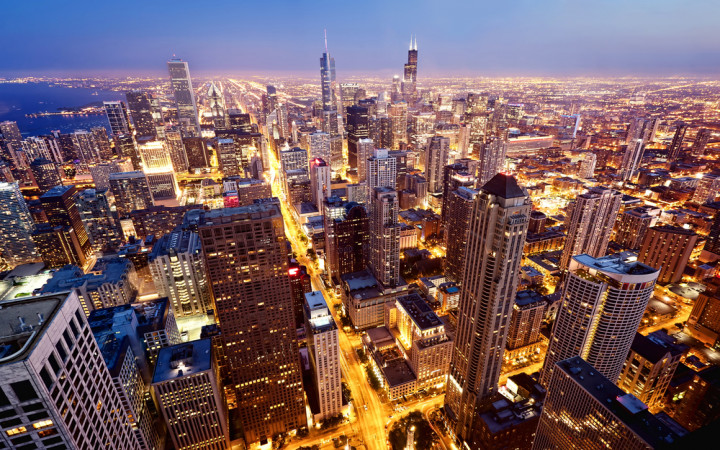What do the Cubs, the White Sox, the Bears, the Bulls, and the Sears Tower all have in common? They're all located in the Windy City! What are we talking about? Chicago, of course!
Chicago is the largest city in Illinois and the third most populous city in the United States with nearly 3 million residents. The greater “Chicagoland" metropolitan area has almost 10 million people!
Located on the shores of Lake Michigan, Chicago has become an important international hub for business, industry, finance, trade, telecommunications, and transportation. In fact, Chicago's largest airport, O'Hare International Airport, is the second-busiest airport in the world.
Chicago has become famous around the world for its sports teams, culture, and news media. It has also earned a variety of nicknames, including “Chi-town," “Windy City," “Second City," and “City of Big Shoulders."
The most popular of these nicknames is probably “Windy City." But why is Chicago so windy? And is it the windiest city in the United States?
As far as being the windiest city, the answer is “no." Brockton, Massachusetts, claims that title. Over time, three main responses have been put forth to explain this popular nickname.
First, Chicago sits along the shores of Lake Michigan. This makes it a naturally breezy area. However, when compared to other major cities, Chicago really isn't significantly windier than any other U.S. city.
Some believe, though, that the city's many skyscrapers create windy conditions at street level as wind gets sucked down toward the streets. Others point out that, in the 1870s, Chicago advertised itself as a perfect summer retreat because of the cool breezes from Lake Michigan.
A second explanation comes from Chicago's longtime rivalry with Cincinnati, Ohio. In the 1860s and 1870s, Chicago and Cincinnati competed to be the best in the meatpacking trade. This business rivalry spilled over into a rivalry between the cities' baseball teams. Cincinnati newspapers would often refer to Chicago as the “Windy City," meaning that the people of Chicago were braggers and full of “hot air".
One final explanation relates to the 1893 World's Fair hosted by Chicago. Chicago won the right to host the fair over larger cities, such as New York, Saint Louis, and Washington, D.C. During the fight for the fair, some believe Charles Dana, editor of The New York Sun, called Chicago the “Windy City" because of the bold claims the city made that he believed they could not deliver upon.




